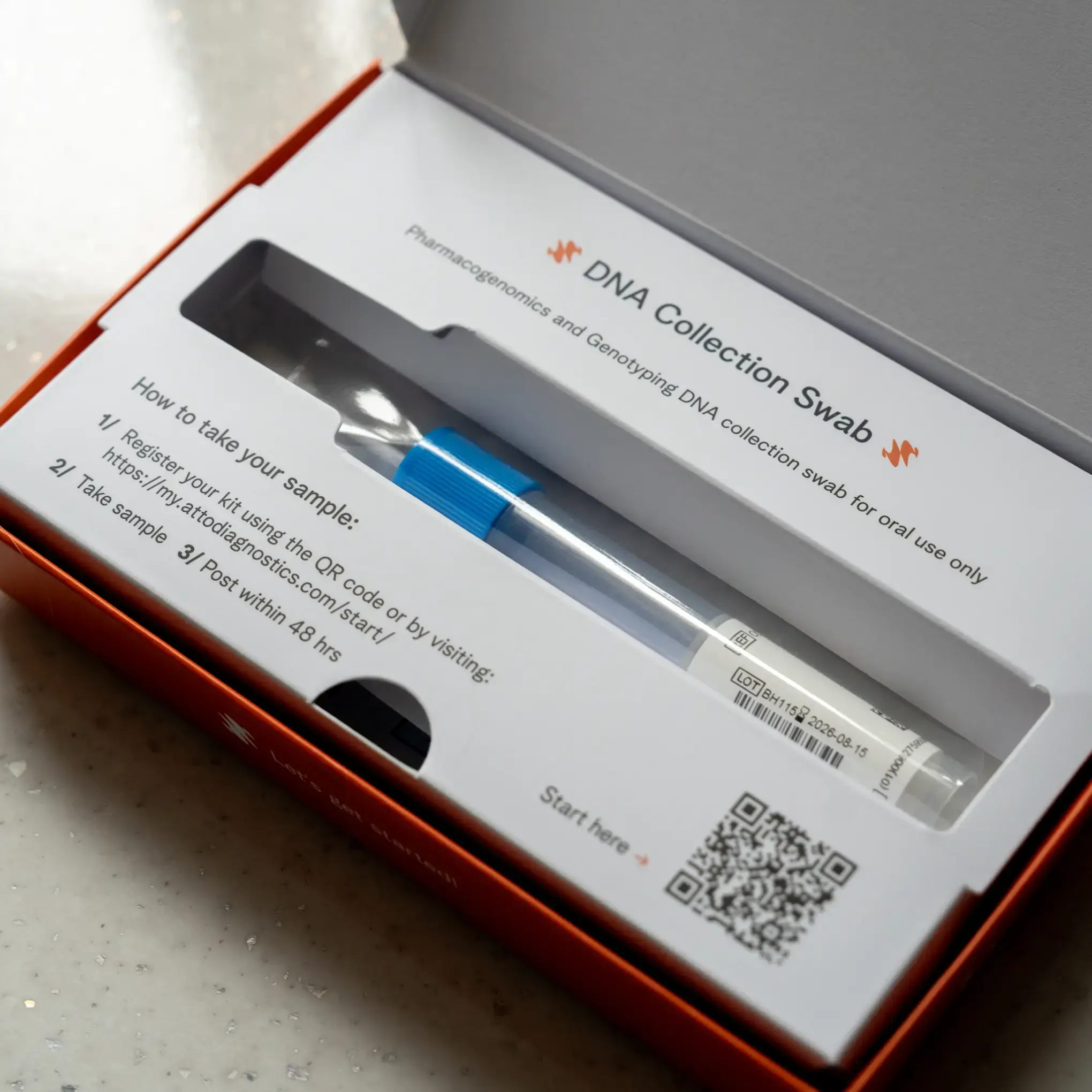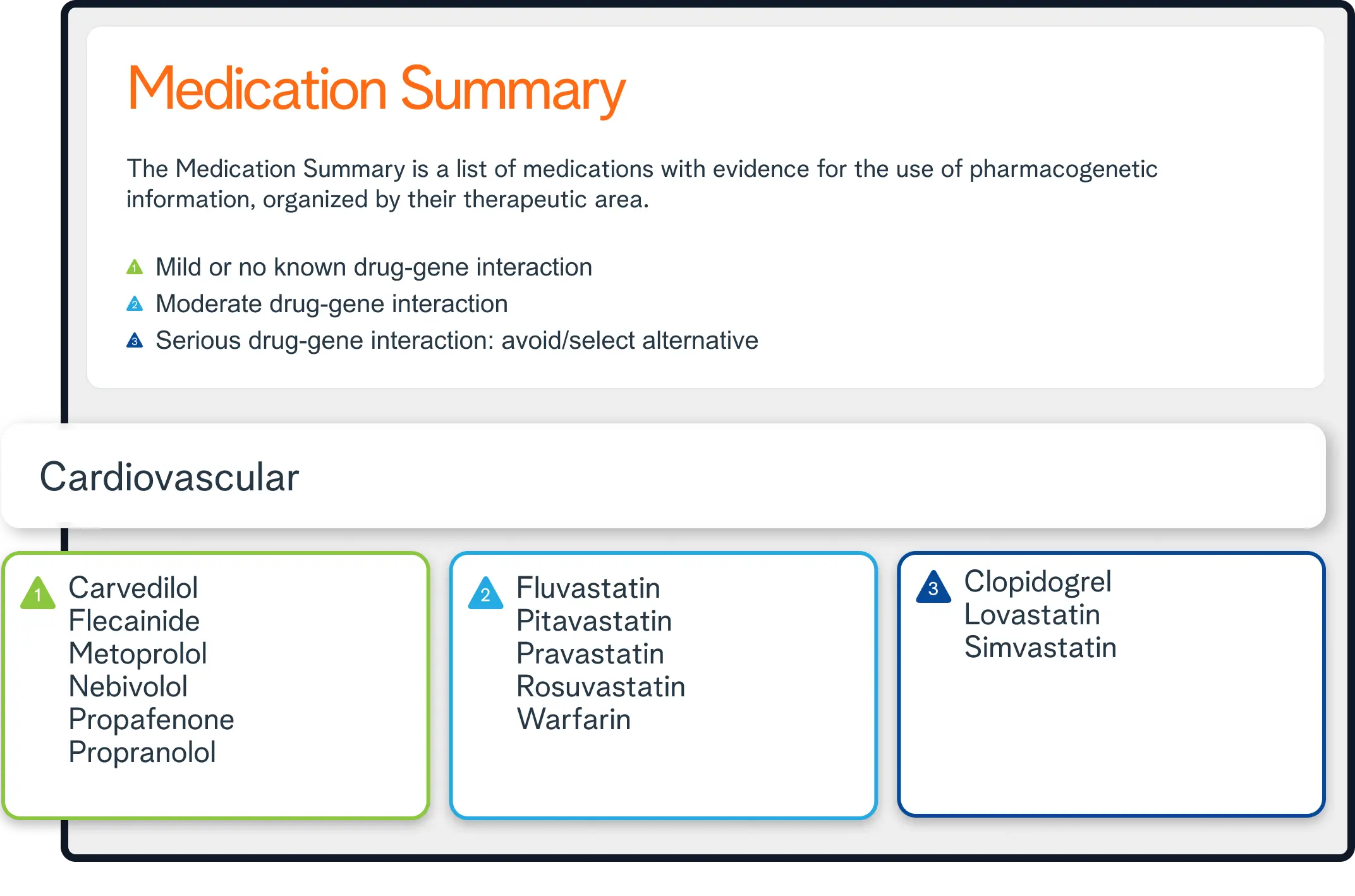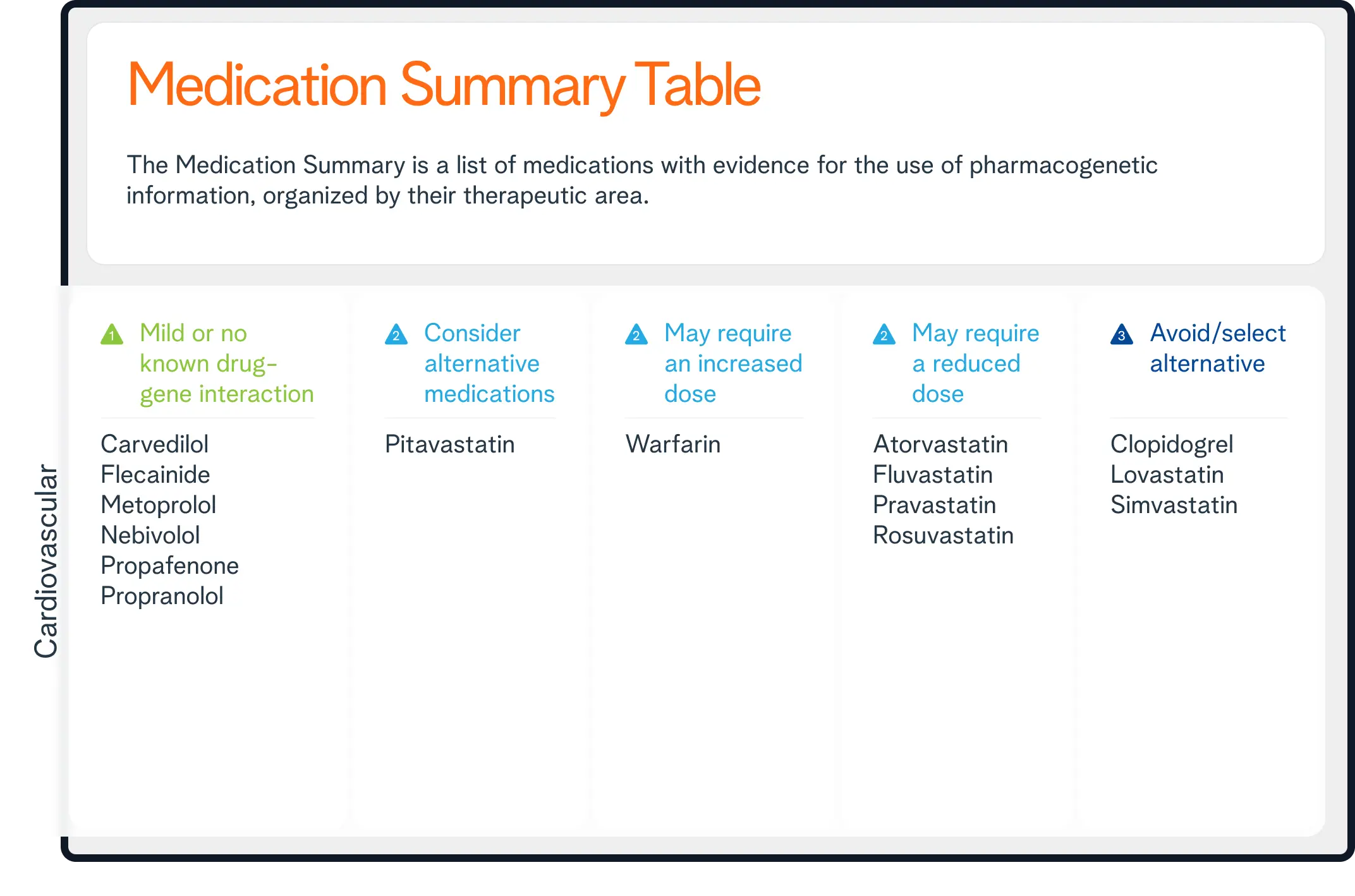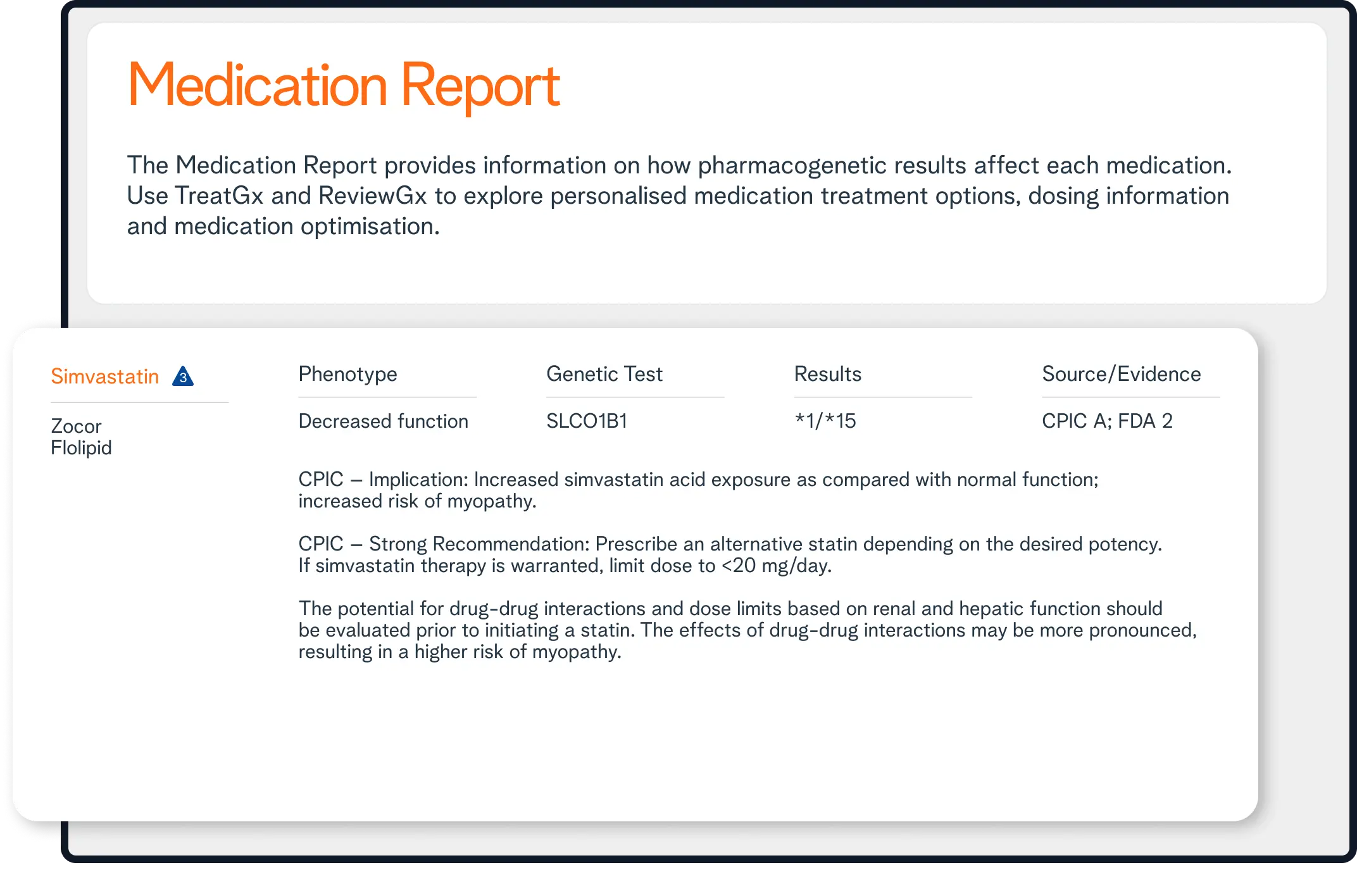Free UK shipping
Results in under 14 days
UK lab
10% Off All Tests - February 2026




PGx FOR CARDIOVASCULAR MEDICATIONS
DNA Test for Heart Medications
Tailored insights into statins, blood pressure drugs, anticoagulants and more. This test helps you avoid serious side effects and find the most effective heart medications for your genes.
- Enables gene-guided medication choices
- Helps prevent one drug interferring with another
- Includes common statins and clopidogrel
£300 £270.00
Free UK Shipping
How PGx Can Help Your Heart Health
PGx testing offers personalised insights to optimise your heart health treatment, helping you find the right medications faster.
Personalised Prescriptions:
Discover heart medications that match your genetic metabolism profile.
Minimise Side Effects:
Cut down the risk of statin-related muscle pain, bleeding risk and more.
Smarter Treatments:
Support better blood pressure and cholesterol control from day one.
Peace of Mind:
Feel confident in your heart health treatment plan.
Save Money:
A PGx-guided plan means fewer appointments and follow-ups thanks to more effective treatment choices.






